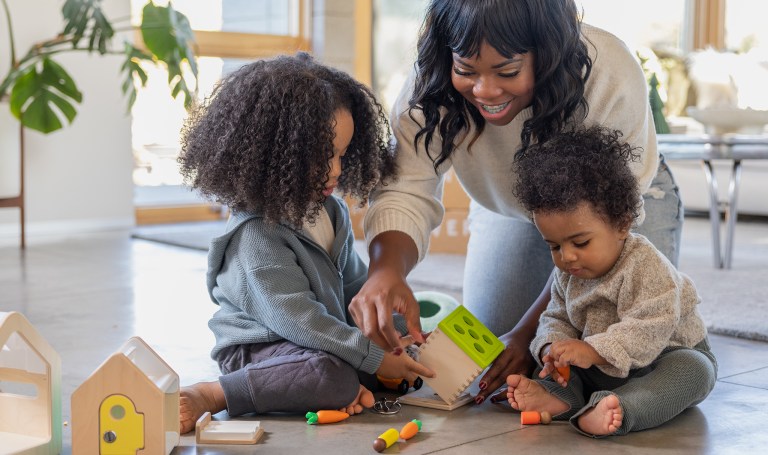DEFINITION OF COGNITIVE DEVELOPMENT
Cognitive development is not only about acquiring knowledge. It is also about learning to think, problem solve, and communicate. This also includes the development of a child’s executive functioning skills. Young children develop cognitively through experiencing and interacting with the world around them first-hand.
COGNITIVE DEVELOPMENT MILESTONES
- Begins to sort objects by color, shape, or size
- Plays simple make-believe games
- Follows two-part directions
- Begins to understand simple time concepts like before and after
- Begins to understand the concept of numbers
- Completes simple puzzles
- Recognizes basic symbolism like nodding head for “yes”
- Finds objects even when hidden under covers
COGNITIVE DEVELOPMENT ACTIVITIES
MUSIC
Young children learn best through play, and that is no different when it comes to developing their cognitive skills. Two-year-olds are beginning to understand the concept of numbers, so it is a great time to incorporate counting and number recognition into their play. Music is a great way to boost math skills and working memory, too.
PROCESS ART
Process art is a great way for young children to work on building their cognitive skills as well. When children have the freedom to choose what materials they use and how they use them to create works of art, they work on decision making skills, planning, and the ability to focus and follow through.
Let your child choose which materials they want to experiment with and how. Give them plenty of space and expect a mess. It is all about the process and allowing your child to take risks and feel successful.
BLOCKS & MANIPULATIVES
Provide your toddler with open-ended toys such as wooden blocks and other manipulatives that they can build with. This will give them an opportunity to work on developing critical thinking and spatial reasoning skills. You can also provide pictures of real life structures for your child to gain inspiration from and also to support their growing comprehension of structures.
PRETEND PLAY
Engaging in pretend play with your toddler will help them to learn how to think outside the box and make the connection between spoken and written language. You can set up a play restaurant or grocery store. Having them lead the play is always best, but toddlers often need some guidance as they begin to explore pretend play.
There are so many fun ways that you can support your child’s cognitive development. Most important of all though is to play and have fun with your child. You will be amazed at just how much your child learns through those play experiences.

